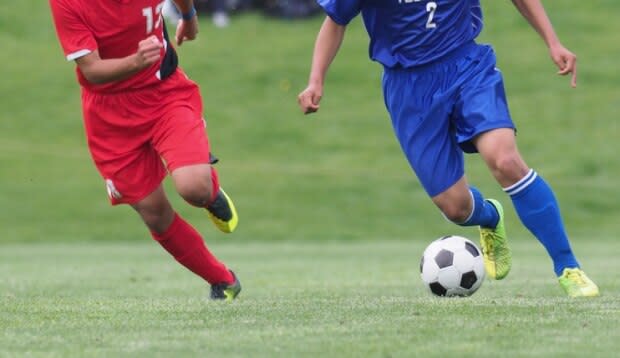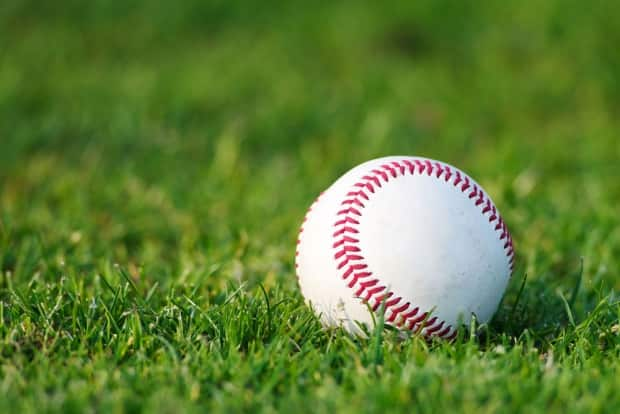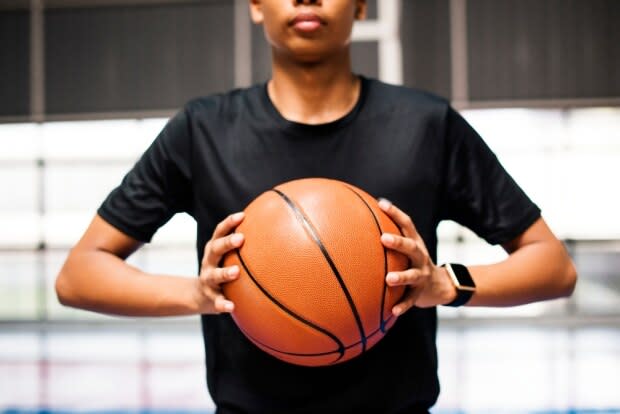Nova Scotia sports groups working to restart play amid COVID-19
Organized sports in Nova Scotia are making plans to restart play this summer and fall amid new COVID-19 guidelines and restrictions.
Under current public health guidelines, the gathering limit is 10 people when no physical distancing is practised.
Hockey Nova Scotia recently released its plan for getting players back on the ice for the 2020-21 season.
The governing body of ice hockey in the province said the plan meets public health guidelines in Nova Scotia and aligns with Hockey Canada's safety guidelines.
"It was really important to us that we had something to start with," Amy Walsh, executive director of Hockey Nova Scotia, told CBC's Information Morning Cape Breton in an interview on Tuesday.
"We heard from our members that they're very anxious to get back on the ice and get back on the ice safely, so we've created a plan that's going to do just that."
The following are guidelines included in the plan, but hockey Nova Scotia notes some of these may be reassessed if public health guidelines change:
No tryouts in August or September for minor hockey associations.
Players and coaches will arrive at the rink at a specific time and leave immediately following the hockey activity.
Where possible, players, coaches and officials should plan to arrive and depart the arena dressed in their hockey equipment.
Players who are under age 13 can be accompanied by one guardian. Players 13 and above are encouraged to enter the rink without a guardian.
Physical distancing of two metres will be maintained at all times unless in a group of 10 or fewer as per the public health guidelines.
When possible, groups of 10 should remain consistent for hockey activities.
The sharing of water bottles and hockey equipment is prohibited. Water bottles must be filled at home and labelled.
While on the ice, players and coaches must not remove their helmets and gloves.
Hockey associations, leagues and programs must designate a league/association safety representative. Each team must identify a team safety rep.
The safety reps are responsible for ensuring that all relevant information is distributed.
Screening of players, coaches, officials and administrators is mandatory. This will be done by the safety reps.
Hockey Nova Scotia will provide specific training for safety reps and coaches.
"Although the game will look slightly different, I am confident they'll be a lot of fun," Walsh said.
The first period of the plan, which covers July 1 to Oct. 1, will also require COVID-19 screenings, no female tryouts, and maximum groups of 50 with physical distancing in the facility.
The second period, which runs from Oct. 1 to a date yet to be determined, would include tryouts, more facilities reopening, flexible registration options and an increase in the number of players/spectators.
The third period, which has no estimated timeline, includes five-versus-five league play and no spectator restrictions.
Soccer Nova Scotia
Brad Lawlor, executive director of Soccer Nova Scotia, told Information Morning while the formal competition season was cancelled, there are still some clubs offering programing that focus on skills development.
"There will be games played, but there will be more inter-club games," he said.
The games would range from three-on-three to five-on-five.

Skills development will be happening throughout the province, but only about a quarter of clubs will be offering it. One of the biggest challenges, Lawlor said, is frequently adjusting programming to meet the latest COVID-19 guidelines.
"It's a lot for volunteers, it's a lot for us to all pivot as soon as a weekly announcement comes from the province and things are changing and numbers are changing and there's an expectation of parents to adapt and get moving in that direction," he said.
Lawlor said the focus is on safety and physical activity.
Baseball Nova Scotia
Baseball Nova Scotia president Andrew Downs told Information Morning the organization is still in its first phase of a return-to-training program, which allows two coaches and eight athletes to do skill development.
"With the one to 10 [gathering limit] rule, it really impacts our ability to move to the next level to offer a return to competition," Downs said.

Downs said Baseball Nova Scotia is looking to make some decisions regarding its Bluenose league, which is provincially run. He said he's hoping a decision will be made on Friday if the league will be able to travel within the province to compete.
Friday marks the first day of the Atlantic travel bubble, which means travellers within the Atlantic provinces will not be required to self-isolate after crossing the borders.
Downs said he's also looking to see if the 10-person gathering limit could be increased to 20, so nine players could be on the field with the coaches and officials working the game.
Basketball Nova Scotia
Katherine Brien, executive director of Basketball Nova Scotia, told Information Morning her sport is also having to abide by the group of 10 rule.
But the biggest barrier so far, Brien said, is finding facilities to run programming. She said Basketball Nova Scotia has moved to a virtual plan and offered virtual workouts.

Clubs that are offering programming are doing it outdoors, but there are limits, she said.
"You can go outside and get a group of 10 and play with a couple of friends with a coach there, but it's really nothing organized enough," Brien said.
Brien said she's hoping to have a plan in August for what will happen in September.
Volleyball Nova Scotia
Jason Trepanier, executive director of Volleyball Nova Scotia, told Information Morning COVID-19 cut off its provincial championships and national championships one month before they were supposed to happen.
"It was really disappointing and disheartening to have to see the season end that way," Trepanier said.
During the summer, he said teams would be training for competitions within Atlantic Canada and Canada.
Over the last two weeks, Volleyball Nova Scotia has been able to organize its beach volleyball program, which is two-on-two.
"We are thankful that's a type of competition that we're able to play," he said.
Trepanier said he's waiting to see what the fall season will look like, adding it will all depend on provincial guidelines. He said group sizes will need to be in the 15-20 range to include coaches and referees.
MORE TOP STORIES


